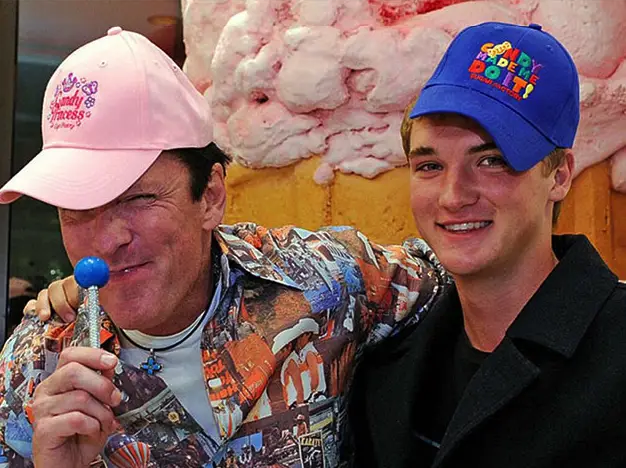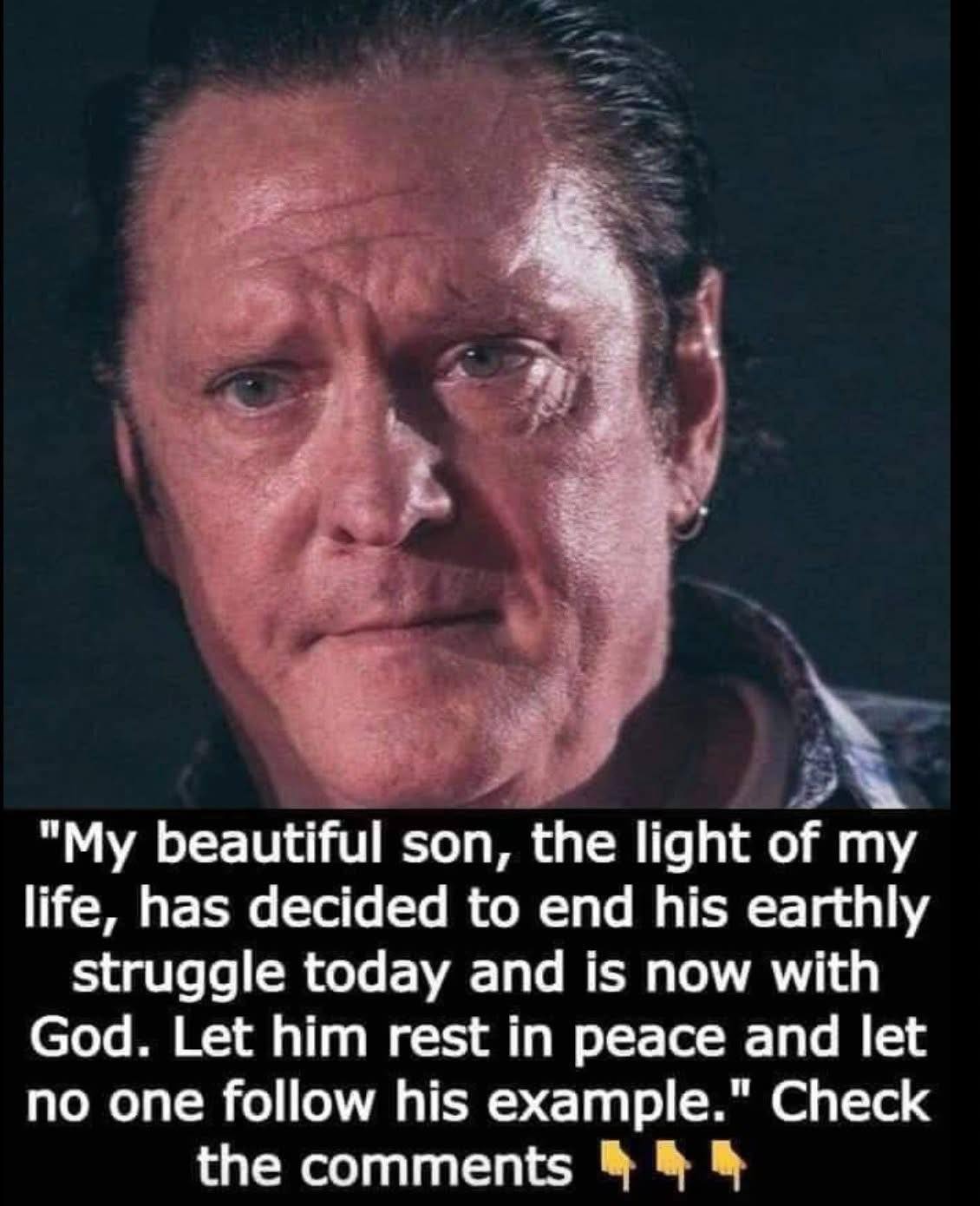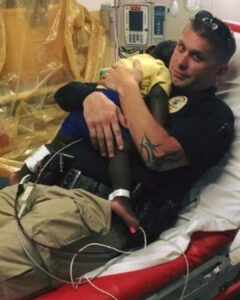Introduction:
Michael Madsen, the iconic star of “Reservoir Dogs” and “Kill Bill,” recently shared his heart-wrenching grief following the death of his son, Hudson, who tragically passed away in January 2022 at the age of 26. The cause of death was reported as a gunshot wound to the head, suspected to be a suicide, and it shook both Madsen’s family and the entertainment community. In his emotional statements, Madsen reveals the unexpected and painful loss, shedding light on the deep struggles that many veterans and their families face when dealing with mental health challenges.
Michael Madsen’s Statement on Hudson’s Passing:
Madsen expressed his sorrow in an interview with The Los Angeles Times, recalling his last conversation with Hudson just days before his passing. “I am in shock as my son, whom I just spoke with a few days ago, said he was happy. My last text from him was ‘I love you, dad,'” Madsen shared. His words reflect a parent’s disbelief when the signs of depression or struggle aren’t visible until it’s too late.
Despite facing typical life challenges such as financial stress, Hudson had a positive outlook for the future. According to Madsen, Hudson was looking forward to starting a family and had strong hopes for what lay ahead. “He wanted a family. He was looking towards his future,” Madsen said, further highlighting the shocking nature of his son’s sudden passing.

Struggles Behind Hudson’s Death:
Madsen believes that Hudson’s time in the military, particularly his deployment to Afghanistan, may have contributed to his mental health struggles. Hudson served in the army at Fort Carson, Colorado, and had a single deployment from August 2018 to January 2019. Madsen mentioned that Hudson was mocked by his peers when he sought therapy to deal with his mental health issues, an experience that deeply affected him.
Veterans are often subjected to immense pressures, both physically and mentally. The stigma around seeking therapy and support in the military can make these challenges even more overwhelming. Madsen’s reflections shed light on a crucial issue that many veterans face — the difficulty of asking for help in a system that can sometimes be dismissive of mental health needs.
Hudson’s Marriage and Life in Hawaii:
At the time of his death, Hudson was married to Carlie, and the two lived in Hawaii. Madsen fondly recalled that his son’s marriage “was going strong,” showing that Hudson had a support system around him. Despite the couple’s apparent happiness, the pressures of daily life, combined with the unspoken mental health struggles, ultimately led to a tragic end.
Hudson’s death has not only devastated his family but has sparked a broader conversation about mental health, particularly in the military community. The lack of adequate mental health support for soldiers returning from deployment is a recurring issue that needs attention from both the military and the public.

The Impact of Mental Health Challenges:
Hudson’s story is a tragic reminder of how mental health struggles can remain hidden behind a facade of normalcy. Many individuals, particularly young adults and veterans, suffer in silence, believing they must face their challenges alone. This issue is not limited to veterans, though. People from all walks of life deal with similar pressures, whether related to financial difficulties, relationship struggles, or career pressures.
Just like Hudson, many individuals may seem fine on the outside, but internally, they are battling feelings of isolation, depression, or anxiety. It’s essential to recognize the importance of support systems and the willingness to reach out for help when facing mental health challenges. Therapy, open conversations, and community support can make a significant difference in preventing such tragic losses.
Moving Forward and Seeking Help:
In memory of Hudson, Madsen hopes his son’s story will inspire others to prioritize their mental health and seek help when needed. It’s critical to dismantle the stigma surrounding therapy and mental health support, especially in communities like the military, where emotional struggles are often minimized or ignored.
Veterans, in particular, should have access to the resources they need, whether that involves therapy, financial counseling, or career guidance. The health and well-being of our veterans must be a priority, ensuring that they receive the support they need to navigate their lives after deployment. Hudson’s death is a poignant reminder of the need for change in how mental health is addressed in military settings.
Take Action and Support Mental Health Initiatives:
If you or someone you know is facing similar struggles, it’s important to seek out resources for help. Many organizations and hotlines offer support for those dealing with mental health issues. Whether through therapy, peer support groups, or educational resources, taking the first step towards recovery is crucial.

Additionally, if you are interested in supporting those in need, consider donating to organizations that assist veterans or mental health advocacy groups. Your contribution can make a difference in someone’s life, providing them with the resources they need to heal and recover.
Full Story: Man Loses 360 Pounds Naturally, Internet Rallies to Support His Next Step
Conclusion:
Michael Madsen’s emotional reflections on the death of his son Hudson serve as a painful but necessary conversation about mental health. His story shines a light on the struggles faced by many, especially veterans, and the impact these struggles can have on their families. It is a reminder that mental health is just as important as physical health, and seeking support is essential for overcoming life’s challenges.
By supporting mental health initiatives and fostering open conversations, we can begin to break the stigma surrounding mental health, ultimately saving lives and helping others live healthier, more fulfilled lives.
Read More: Tammy Hembrow’s Bikini Photos Are Stirring Controversy – Here’s Why Everyone’s Talking
This article is designed to increase awareness, foster dialogue, and inspire action on the critical issue of mental health, especially within the veteran community. By acknowledging and addressing these concerns, we can work together to create a more supportive and understanding environment for everyone facing mental health challenges.


